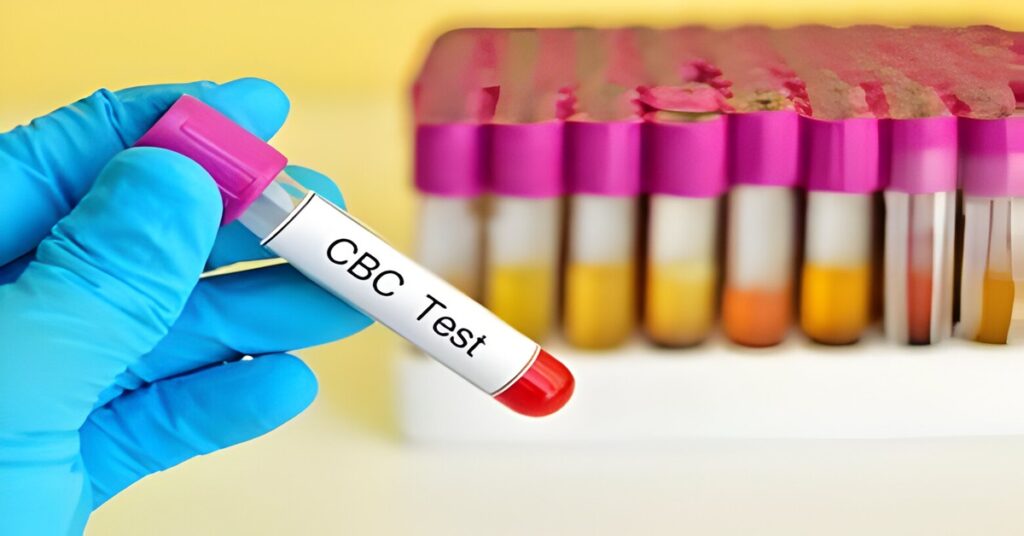Complete Blood Count (CBC) test is a common blood test that provides important information about the types and numbers of cells in your blood. It helps doctors diagnose various conditions and monitor your overall health. In this comprehensive guide, we’ll delve into the details of CBC tests, explaining the significance of each component and what low or high values may indicate.
What is a CBC Test?
A CBC test measures several components of your blood, including red blood cells (RBCs), white blood cells (WBCs), and platelets. Each of these components plays a crucial role in maintaining your health.
Red Blood Cells (RBCs):
Red blood cells, also called erythrocytes, carry oxygen from your lungs to the rest of your body and transport carbon dioxide back to your lungs to be exhaled. The CBC test provides several measurements related to red blood cells:
- Hemoglobin (Hgb): This is the protein in red blood cells that carries oxygen. Low hemoglobin levels may indicate anemia, which can cause fatigue, weakness, and shortness of breath.
- Hematocrit (Hct): This measures the percentage of your blood volume that is composed of red blood cells. Low hematocrit levels may also suggest anemia.
- Red Blood Cell Count (RBC): This measures the number of red blood cells in a given volume of blood. Low RBC counts can indicate anemia, while high counts may suggest dehydration or certain medical conditions.
White Blood Cells (WBCs):
White blood cells, also known as leukocytes, are a vital part of your immune system. They help your body fight off infections and diseases. The CBC test includes measurements related to white blood cells:
- White Blood Cell Count (WBC): This measures the number of white blood cells in your blood. High WBC counts may indicate an infection or inflammation, while low counts could indicate a weakened immune system or bone marrow problems.
- Differential White Blood Cell Count: This measures the percentages of different types of white blood cells, such as neutrophils, lymphocytes, monocytes, eosinophils, and basophils. Changes in these percentages can provide clues about specific infections or conditions.
Platelets:
Platelets, also called thrombocytes, are tiny cells that help your blood clot to stop bleeding. The CBC test includes a measurement called the Platelet Count, which indicates the number of platelets in your blood. Low platelet counts can lead to excessive bleeding and bruising, while high counts may increase the risk of blood clots.
Interpreting CBC Results:
Now that we understand the components of a CBC test, let’s explore what different results may indicate:
- Low Red Blood Cell Count (Anemia):
- Symptoms: Fatigue, weakness, shortness of breath, pale skin.
- Causes: Iron deficiency, vitamin deficiency, blood loss, chronic diseases (e.g., kidney disease, cancer), bone marrow problems.
- Complications: Anemia can lead to reduced oxygen delivery to tissues, causing organ damage and affecting overall health.
- High Red Blood Cell Count (Polycythemia):
- Symptoms: Headaches, dizziness, itching, blurred vision, fatigue.
- Causes: Dehydration, lung diseases (e.g., COPD), heart diseases, kidney tumors, bone marrow disorders.
- Complications: High red blood cell counts can increase the risk of blood clots, stroke, and heart attacks.
- Low White Blood Cell Count (Leukopenia):
- Symptoms: Frequent infections, fever, fatigue, mouth sores.
- Causes: Bone marrow problems, autoimmune disorders, viral infections (e.g., HIV, hepatitis), certain medications (e.g., chemotherapy).
- Complications: Weakened immune system, increased susceptibility to infections.
- High White Blood Cell Count (Leukocytosis):
- Symptoms: Fever, inflammation, swollen lymph nodes, fatigue, unexplained weight loss.
- Causes: Infections (bacterial, viral, fungal), inflammatory conditions (e.g., rheumatoid arthritis), leukemia, stress, smoking.
- Complications: High white blood cell counts can indicate underlying health problems that require further investigation and treatment.
- Low Platelet Count (Thrombocytopenia):
- Symptoms: Excessive bruising, prolonged bleeding from cuts, petechiae (small red or purple spots on the skin).
- Causes: Bone marrow disorders, autoimmune diseases, certain medications (e.g., chemotherapy, heparin), viral infections (e.g., HIV, hepatitis).
- Complications: Increased risk of bleeding, especially during surgery or trauma.
- High Platelet Count (Thrombocytosis):
- Symptoms: Blood clots, stroke, heart attack, weakness, headache.
- Causes: Infections, inflammation, iron deficiency, cancer, bone marrow disorders.
- Complications: High platelet counts can increase the risk of blood clots, which can lead to serious conditions such as stroke or heart attack.
A Complete Blood Count (CBC) test provides valuable information about the health and function of your blood cells. Understanding the significance of each component and how abnormal results can indicate underlying health conditions is essential for proper diagnosis and treatment. If you have any concerns about your CBC results, it’s important to consult with your healthcare provider for further evaluation and guidance

